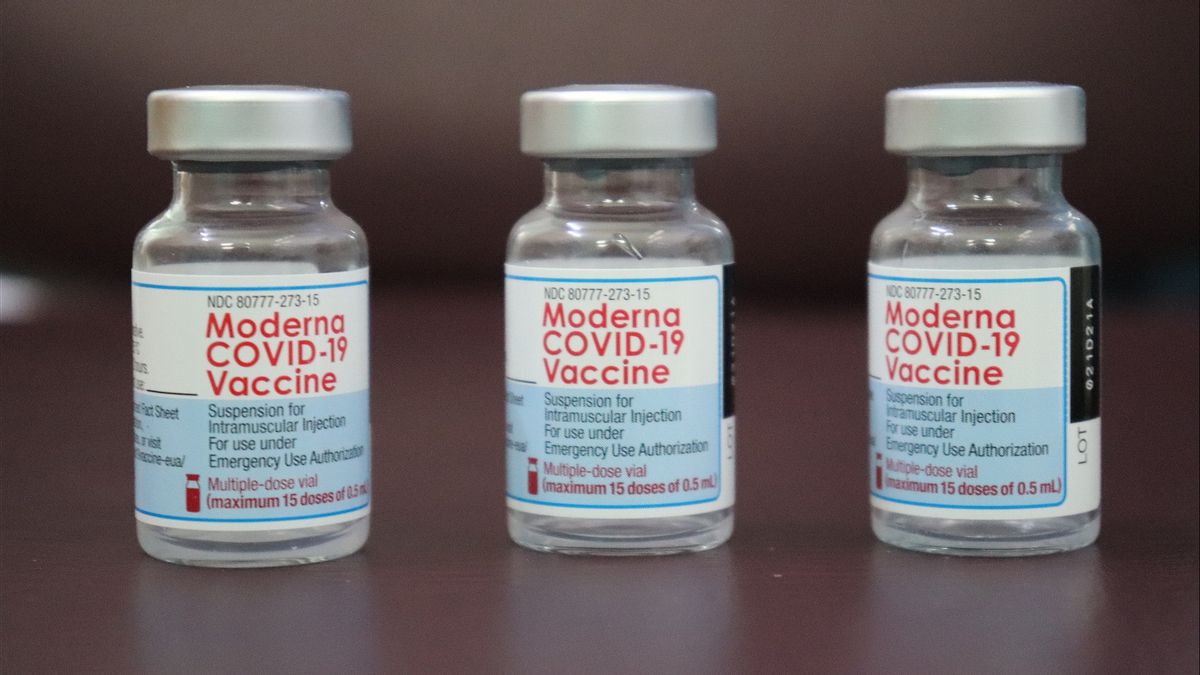JAKARAT - Recent data from Moderna Inc's (MRNA.O) large-scale COVID-19 vaccine trial shows protection against the virus has decreased over time. Therefore, Moderna supports increasing doses or boosters to fight COVID-19.
"This is just an estimate, but we believe it means when you look towards the fall and winter season, at least we estimate the estimated impact of reduced immunity will be 600,000 additional cases of COVID-19," Moderna President Stephen Hoge said in a statement. , Thursday, September 16.
Hoge didn't project how serious the case would be, but he said it would lead to more hospitalizations.
The data contrasts sharply with data from several studies showing that Moderna vaccine protection lasts longer than similar injections from Pfizer Inc (PFE.N) and German partner BioNTech SE.
Experts say the difference is likely due to Moderna's higher dose of messenger RNA (mRNA) and the slightly longer interval between the first and second injections.
However, the Moderna vaccine and the Pfizer-BioNTech vaccine have been shown to be highly effective in preventing the transmission of COVID-19 based on the third phase of clinical trials.
Wednesday's analysis, however, showed higher infection rates among people vaccinated about 13 months ago compared to those vaccinated about eight months ago. The research period is from July-August, when the Delta Variant emerges.
Moderna on September 1 filed its application with the US Food and Drug Administration for a booster.
Hoge said data from his booster study showed the vaccine could raise the neutralizing antibody to a higher level than was seen after the second dose.
"We believe this will reduce COVID-19 cases. We also believe that a third dose of mRNA-1273 has the opportunity to significantly extend immunity throughout most of the next year as we work to end the pandemic," he said.
In its analysis, Moderna compared vaccine performance in more than 14,000 volunteers vaccinated between July and October 2020 with approximately 11,000 volunteers initially in the placebo group who were offered injections between December 2020 and March 2022 following US emergency use authorization.
In the two-month period from July-August, the researchers identified 88 cases of COVID-19 among those who had two recent injections, compared with 162 among those vaccinated last year. Overall, only 19 cases were considered severe to be the main yardstick in assessing waning protection.
Moderna said the reduced immunity from the findings of the new analysis adds to the evidence that booster doses may be considered.
Data from a separate study presented Wednesday conducted with the Kaiser Permanente Southern California health system, shows that the Moderna vaccine continues to perform well against the Delta variant.
Researchers compared data from more than 352,000 people who received two doses of Moderna vaccine with the same number of unvaccinated individuals and found that Moderna's vaccine was 87 percent effective at preventing a diagnosis of COVID-19, and 96 percent effective at preventing hospitalization.
Hoge said the initial performance of the vaccine was strong, but argued that protection should not be allowed to diminish.
"The first six months were great, but you can't count on it being stable for a year and beyond," he said.
The English, Chinese, Japanese, Arabic, and French versions are automatically generated by the AI. So there may still be inaccuracies in translating, please always see Indonesian as our main language. (system supported by DigitalSiber.id)













